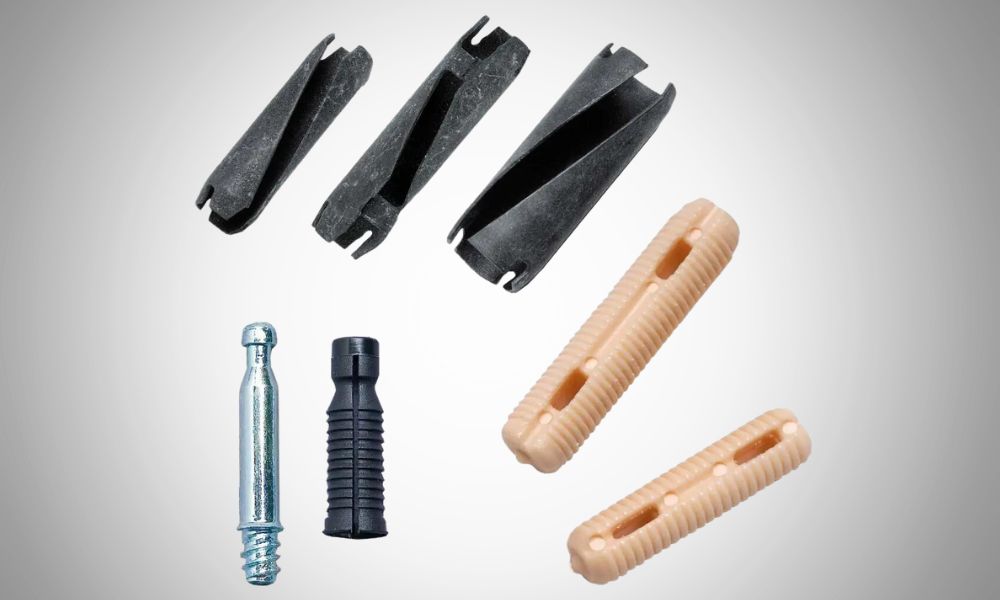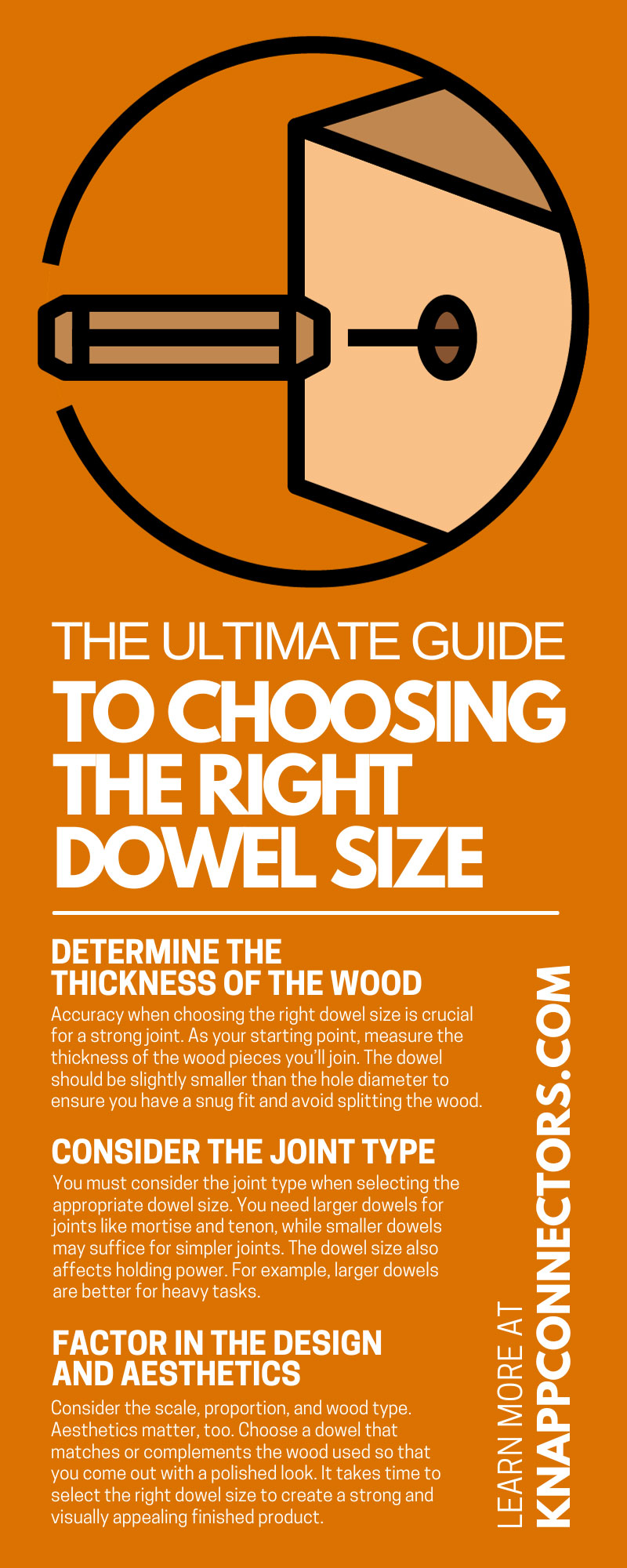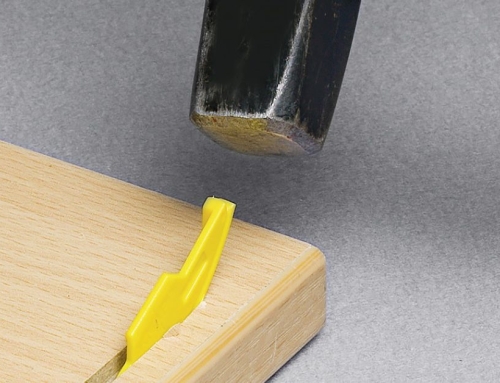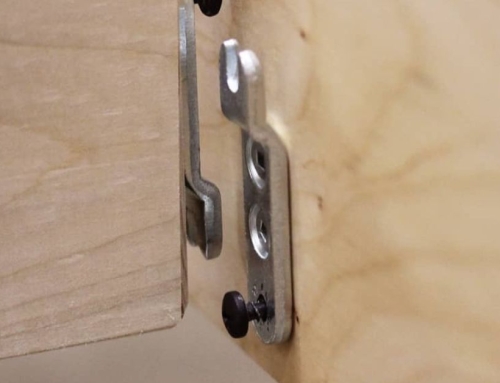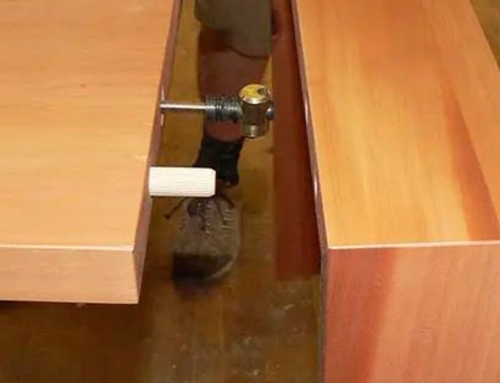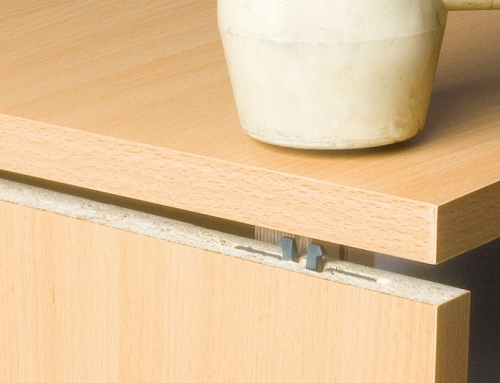Searching for the right dowel size can be daunting, but it’s necessary for a durable woodworking project or home improvement job. With so many sizes, shapes, and materials available on the market, it can be hard to know which option would be best. But never fear—we’re here to provide all the information you need to select the ideal dowel size for any project!
In this ultimate guide to finding the right dowel size, we’ll walk you through everything from understanding what factors affect your choice of dowel size to choosing which type is best for your desired purpose. This way, you can create more durable and aesthetically pleasing projects in the future.
Why Is Selecting the Right Size Important?
Selecting the right dowel size improves your finished piece’s stability, strength, and overall appearance. Choosing a dowel that’s too small may not provide the necessary strength for your joint. On the other hand, opting for a dowel that’s too large can lead to an odd appearance or, in some cases, even split the wood.
What Are the Benefits of Choosing the Right Size?
Selecting the right dowel size offers several key benefits. It ensures you have a strong and secure connection between the joined pieces and enhances the overall durability of the structure. The right dowels properly distribute the weight of your project. This can reduce the risk of structural failure.
Not to mention, using the correct dowel size improves the work’s aesthetic quality. Paying close attention to your work will prevent unsightly gaps and misalignments that can detract from the finished appearance.
Above all, choosing the right dowel size can save time and resources by eliminating the need for unnecessary adjustments and modifications. Therefore, carefully considering dowel size is crucial in woodworking and construction projects.
Steps for Selecting the Right Dowel Size
Knowing how to select the right size dowel can be tricky. However, knowing the basics to strengthen your woodworking and contracting skills is important. By following these steps, you can determine the best fit for your project and do it confidently.
Determine the Thickness of the Wood
Accuracy when choosing the right dowel size is crucial for a strong joint. As your starting point, measure the thickness of the wood pieces you’ll join. The dowel should be slightly smaller than the hole diameter to ensure you have a snug fit and avoid splitting the wood.
Consider the length of the dowel, as it should be longer than both wood pieces for maximum joint strength. Different wood types may require different dowel sizes. Careful measurement leads to stronger, longer-lasting joints in woodworking projects.
Select a Dowel Diameter Based on Wood Thickness
A good start is to select a dowel diameter that’s half the thickness of the thinner wood piece. However, you must consider other factors, such as the type of wood, the woodworking technique, and the load on the finished piece.
If the wood pieces differ significantly in thickness, multiple smaller dowels may be more beneficial than a single larger one. Also, ensure you allow for a snug fit for the dowel in the drilled holes. Precise drilling and accurate measurement are crucial for successful doweling.
Consider the Joint Type
You must consider the joint type when selecting the appropriate dowel size. You need larger dowels for joints like mortise and tenon, while smaller dowels may suffice for simpler joints. The dowel size also affects holding power. For example, larger dowels are better for heavy tasks.
Also, pay attention to dowel spacing for stronger joints and use larger dowels with closer spacing. You can ensure project strength, stability, and high-quality results by selecting the right dowel for your joint type.
Factor in the Design and Aesthetics
When choosing the right dowel size for your project, you should also factor appearance and functionality into your decision-making process. A small dowel may compromise strength, while a large one can be visually overwhelming. Consider the scale, proportion, and wood type. Aesthetics matter, too. Choose a dowel that matches or complements the wood used so that you come out with a polished look. It takes time to select the right dowel size to create a strong and visually appealing finished product.
Test the Fit
When it comes to woodworking projects, choosing the right dowel size is crucial for a secure fit and project durability. Since there are so many dowel dimensions out there, it can be overwhelming to select the right one. That’s why testing the fit on scrap wood is essential.
It helps to assess stability and determine if the size matches your design preferences. This step is particularly important for intricate designs or joinery. By testing the fit, you can avoid surprises like loose joints or split wood. Take the time to try each size before committing.
Bonus Tip: Use Dowel Rod Connectors
Dowel rod connectors can be especially handy for projects that require a longer dowel than you can find on the market. These connectors fit securely into pre-drilled holes to ensure easy and precise alignment. With various sizes available, they provide valuable assistance in selecting the ideal dowel rod for any project. However, when using this type of connector, ensure that the dowels and connector are of the same diameter for a secure fit. An insecure fit will harm your project in the long run.
Find the Perfect Dowel for Your Project
Choosing the perfect dowel size for your woodworking project requires careful planning, consideration of the wood thickness and joint type, and attention to design details. By following our guide to choosing the right dowel size, you’ll be well on your way to creating a strong, stable, and visually pleasing woodworking project.
Ready to take your woodworking skills to the next level? At Knapp, we specialize in creating innovatively designed wooden connectors to streamline your woodworking tasks. For more information on how our products can be a service to you, check out our selection of various wooden connectors. If you have any questions, you can contact us here or call us at 704-499-4899.

